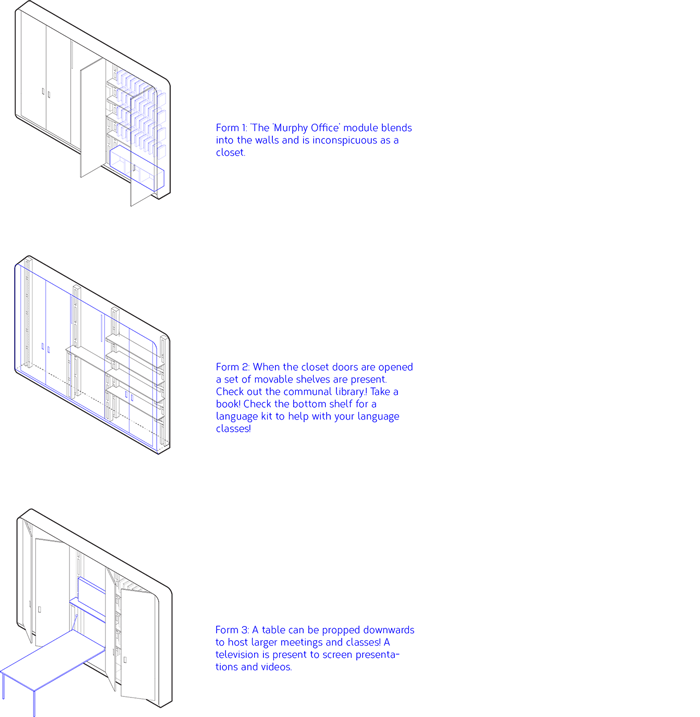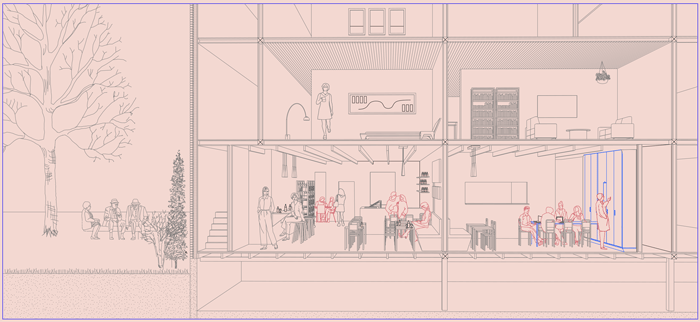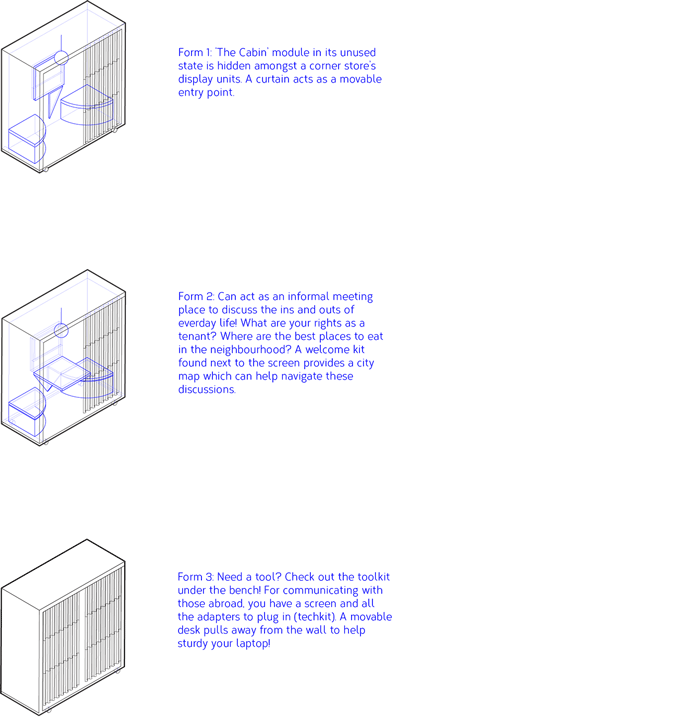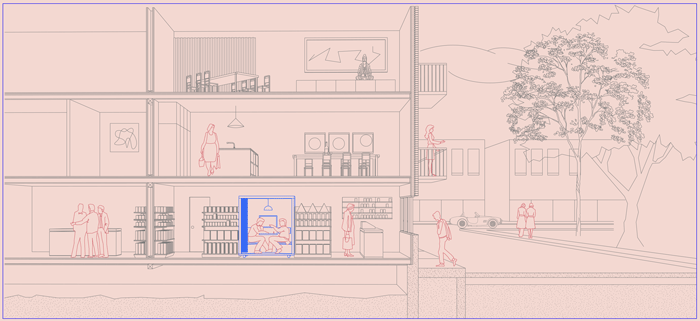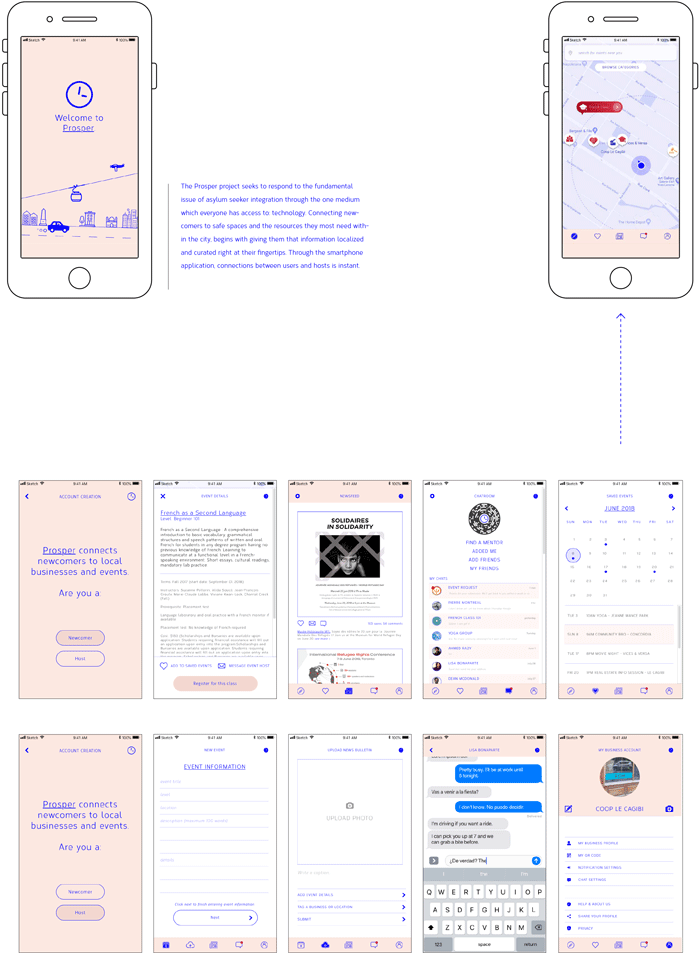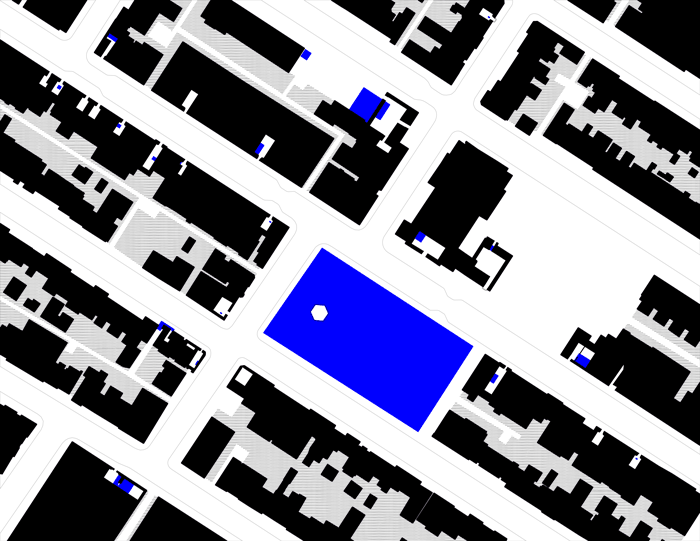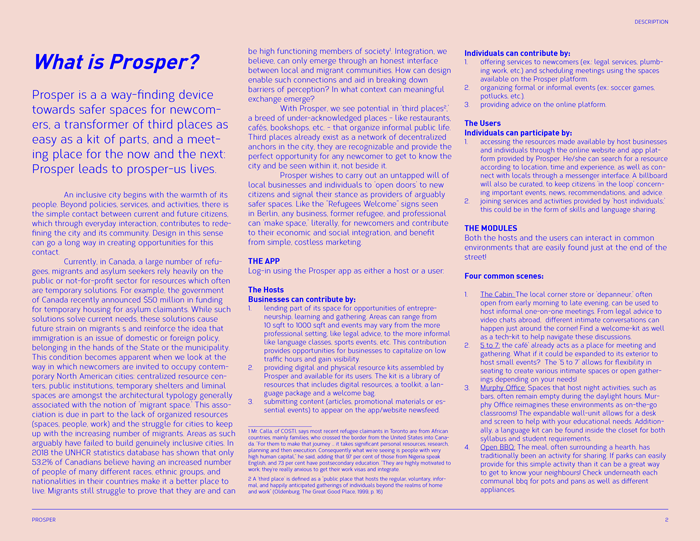Prosper
Displaced: design for inclusive cities in collaboration with the refugee centre montréal
2019 submission with K. Lee, J. Phan, S. Pradel, M. Aubin-Salhi
An inclusive city begins with the warmth of its people. Beyond policies, services, and activities, there is the simple contact between current and future citizens, which through everyday interaction, contributes to redefining the city and its community. Design in this sense can go a long way in creating opportunities for this contact.
Current statistics reveal refugees, migrants and asylum seekers rely heavily on government and not-for-profit sector for resources which often are temporary solutions. While such solutions solve current needs, they can cause future strain on migrants and reinforce the idea that immigration is an issue of domestic or foreign policy, belonging in the hands of the State or municipality. This condition becomes apparent when we look at how newcomers are invited to occupy contemporary North American cities: centralized resource centers, public institutions, temporary shelters and liminal spaces are amongst the architectural typology generally associated with the notion of ‘migrant space.’ This association is due in part to the lack of organized resources (spaces, people, work) and the struggle for cities to keep up with the increasing number of migrants. Areas as such arguably have failed to build genuinely inclusive cities.
Migrants still struggle to prove to the general public that they are and can be high functioning members of society. Integration, we believe, can only emerge through an honest interface between local and migrant communities. How can design enable such connections and aid in breaking down barriers of perception? In what context can meaningful exchange emerge? With Prosper, we see potential in ‘third places,’ a breed of under-acknowledged places - like restaurants, cafés, bookshops, etc. - that organize informal public life. Third places already exist as a network of decentralized anchors in the city, they are recognizable and provide the perfect opportunity for any newcomer to get to know the city and be seen within it, not beside it. Prosper wishes to carry out an untapped will of local businesses and individuals to ‘open doors’ to new citizens and signal their stance as providers of arguably safer spaces. Like the “Refugees Welcome” signs seen in Berlin, any business, former refugee, and professional can ‘make space,’ literally, for newcomers and contribute to their economic and social integration, and benefit from simple, costless marketing.

